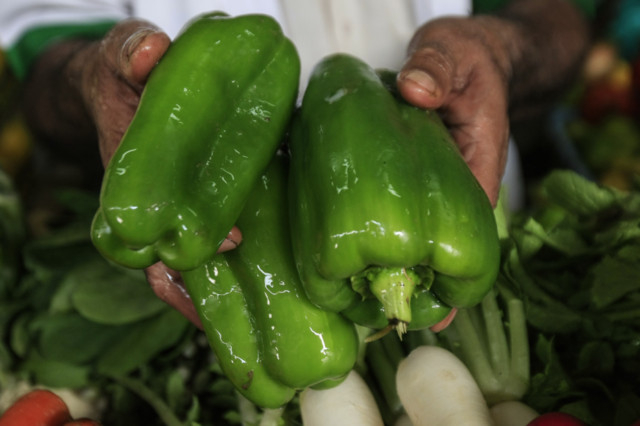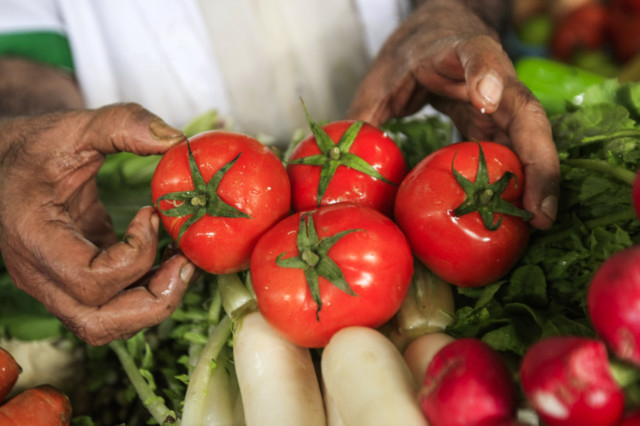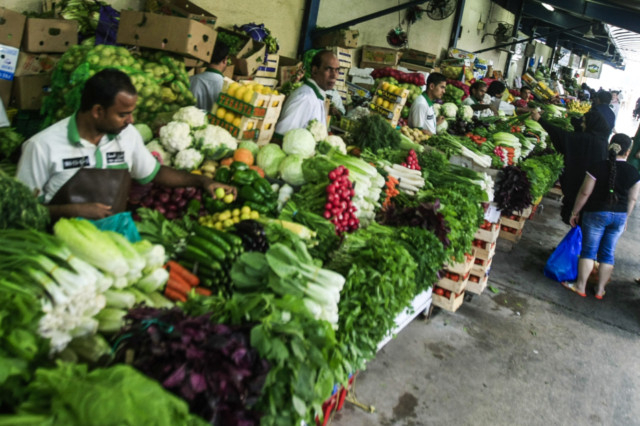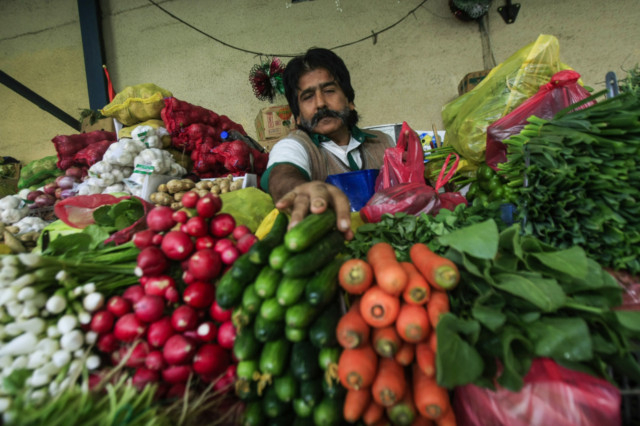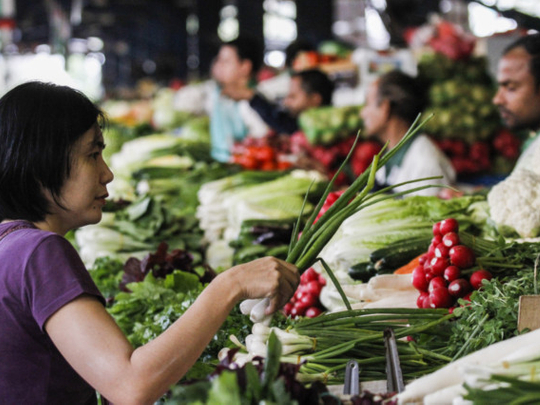
Dubai: If you can brave the stench of the Deira Fish Market, you’re in for a great organic vegetable treat.
“It’s the season for locally-produced vegetables,” said Abu Bakr, a 58-year-old Indian who owns stall No. 10 at the seaside market, popular among weekend shoppers.
“What more can you ask for? Just grab a bundle – parsley, spring onion, coriander, mint or spinach for just Dh1 each.”
Abdullah, a Bangladeshi who runs vegetable stall No. 11, said: “We have more local veggies this time. These are certified organic.”
Buyers happily snap up the fresh produce. “These are great salad days for me, literally,” said Pramod, an Asian expatriate who had come with his two young sons on a weekend visit to the market not far from the Palm Deira station on the Green Line.
Well-heeled Dubai residents usually go to Friday organic markets or hypermarket chains, but the Deira Fish Market is the centre of organic action for all classes. It was launched by the Dubai Municipality in collaboration with the Ministry of Environment and Water recently.
“I usually come here for fresh fish but I take fresh veggies, too, on my way out. They’re fresh and cheap – just great,” said Steve, a British financial adviser.
Though the UAE is a net food and vegetable importer, farming in the desert has become sort of a fad. The Dubai-Veg-Growers Facebook page has over 300 members who often rave about their new pickings of vegetables grown at home.
Some, like Jun Rivera, a Filipino father of three, grows tomatoes, pumpkin, string beans and okra in a small plot inside a Rashidiya villa he rents.
The UAE bought Dh5.3 billion worth of fruit and vegetables in 2010, most of which were re-exported to neighbouring Gulf countries.
But importers who buy from as far away as Australia swear by the freshness and growing availability of local produce, thanks to farming techniques such as hydroponics and climate-controlled greenhouses.
Daniel Cabral, procurement manager for Kibsons, a leading fruit and vegetable importer based in Al Aweer, said: “There’s a place for locally grown veggies. The good news is that they are usually fresher and cheaper.”
Cabral said up to 10 per cent of the vegetables they sell are now sourced locally, from virtually zero in the past. Cabral said they buy everything from parsley and capsicum to cauliflower and rocket from about a dozen big local growers.
“There’s more of them (growers) around,” said Cabral. “We do find that local produce is a lot more organic.”
In November, the Ministry of Environment and Water announced a certification system for locally-produced and imported organic food, under fresh regulations set early last year.
The Emirates Authority for Standardisation and Metrology (Esma) certified 17 UAE organic farms in 2012 and others are under process.
Up to 70 types of vegetables are grown in the UAE, many of them in climate-controlled greenhouses, while others are in open-air farms.
Obaid Ebrahim, head of the Assets Management Department at Dubai Municipality, said nine local farms currently supply organic fruit and vegetables to the Deira Fish Market.
“We expect more to join this project. There are huge financial and health benefits,” he said, adding that they have minimised the stall rents to encourage local producers. Plans are afoot to expand organic products section, he said.
The only downside with the Deira Fish Market, say buyers, is the stench which tends to stick to one’s clothing.


